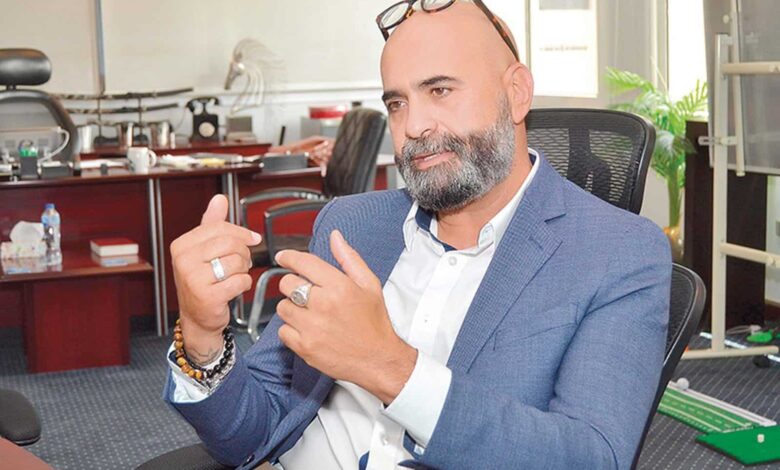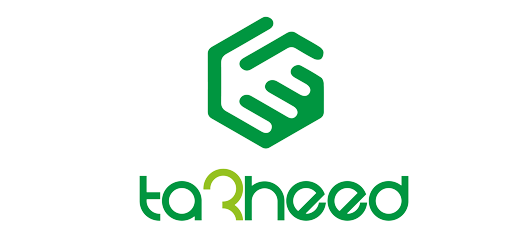Centro Targets Investments Exceeding EGP 300 Million after Expanding in Gulf and Africa

Centro, a leading outsourcing company in Egypt, is setting ambitious growth targets.
The company plans to double its investments in Egypt to over EGP 300 million as part of its expansion strategy in the Gulf region and Africa. This expansion is expected to commence in early 2024, with South Africa being a key target market.
Hesham Farag,CEO, Centro, said that Centro operates in five countries: Egypt, Saudi Arabia, Dubai, the United States, and the Philippines. He noted that Centro’s operations in Egypt began with the aim of exporting its services to customers in the United States.”
The total number of company employees providing services to US customers is estimated at around 1,000. The company began operations in the Egyptian market in 2010 with the aim of providing outsourcing services to a Centro subsidiary in the United States.”
“He added that he owns a number of companies operating in various sectors, including the medical sector, the technology sector, the home furniture sector, and the outsourcing sector.
He noted that Egypt is one of the markets that has many qualifications that make it a regional center for exporting outsourcing services to foreign markets, as he described it.”
In a related context, Farag explained that the current global trend towards adopting artificial intelligence technologies will not contribute to reducing the role of the customer service employee profession.
He explained that on the contrary, artificial intelligence technologies will be used to develop the customer service employee work model during the coming period.
He pointed out that his company works to provide technological solutions to its customers by examining and analyzing the private data provided by customers, which contributes to increasing the number of the company’s customers, as well as helping the company hire customer service representatives.
He also mentioned that Centro has been developing its business model for years by developing the skills of its employees, with the aim of changing the stereotypical image that the call center’s job is only to respond to customer inquiries by phone, which Faraj sees as very tiring for employees.
He added that Centro’s business model and its being the sole owner allow it to modify its plan and adapt to changes smoothly, unlike global companies that may have a board of directors and public offerings in some cases, which contributed to taking proactive steps in the markets in which it operates.
Farag mentioned that his company has raised the salaries of its employees by 30% since the end of last year to cope with the burdens of inflation. He explained that Centro aims to focus on exporting digital services abroad as a technology company more than a call center service provider.
Centro Academy
Centro Academy is a new initiative launched by Centro, a leading provider of customer service and digital solutions in the Middle East and Africa.
The academy aims to train 20 call center agents in software development, data analysis, and future technologies.
The training program will last for six months, and new batches of trainees will be accepted every two months.
He said, A number of Centro’s employees have volunteered to participate in the training of human resources without any compensation.
Centro has no plans to open branches in Eastern Europe because employee salaries there are too high.
Centro is planning to expand into South Africa in early 2024, followed by the Moroccan market at a later stage.
Centro is expanding internationally to diversify its revenue streams and increase its customer base, coinciding with the opening of new local headquarters.
Centro’s efforts to attract foreign investment to Egypt have yielded positive results, with the company successfully bringing a US healthcare company to the country, creating jobs, and boosting the economy.
Centro is making significant investments in the Saudi Arabian and UAE markets, expanding its reach across the Gulf region.
Centro’s Future Plans
Centro is considering an IPO on the Egyptian Stock Exchange within the next 3-5 years, driven by strong growth rates and diversification into new markets.
He said Centro is targeting a 65% growth in revenue by the end of the year, driven by its expansion into Gulf and African markets. The company currently has around 1,000 employees.
Centro’s focus on digital exports has driven its international expansion, with 95% of its business coming from outside of Egypt. Swvl, a smart public transportation service, is one of the company’s notable clients, having grown from 7 seats to 150 seats under Centro’s guidance.
Centro’s partnership with a Berkshire Hathaway subsidiary in 2018 led to a remarkable 1000% growth in its call center operations, expanding from 30 to 300 seats within six months.
He emphasized, Centro’s proactive approach to remote work enabled a seamless transition to a work-from-home model during the COVID-19 pandemic, effectively shifting its entire workforce to remote operations within a single week.
Pointing out that when Centro started its operations in 2010, it was ranked among the best call center service providers in Egypt, with salary levels reaching 15 thousand pounds per month.
Farag revealed that he had exited all other investments except for two companies, one of which was Centro and another in the field of health care solutions in America.
He pointed out that Centro is considering establishing a holding entity that includes under its umbrella the two previous entities and works in the information technology and healthcare solutions sector, revealing that initial negotiations are being held with consulting companies to move forward with implementation procedures.
The total volume of the company’s current investments in Egypt is estimated at more than 120 million pounds, and it plans to double it by the end of 2023.
Steps to develop the outsourcing industry
Regarding the requirements for advancing the outsourcing industry, he stressed the importance of studying successful experiences in the outsourcing services industry, including India and the Philippines, in attracting international companies while providing investment incentives, including exempting employee salaries from the labor gain tax, in addition to advantages for training human cadres.
He also called for the need to increase the percentage of support provided by the Information Technology Industry Development Authority (ITIDA) on digital exports to a percentage ranging between 15% to 20% of the total profit annually after deducting the cost, compared to 7% to 10% currently, especially with inflation rates reaching 40%.
She said that Egyptian call center companies need to reconsider the prices of international connection circuits with the Gulf countries, and they may allow the activation of Voice over IP technology as an alternative until it is reviewed.
He advised young people who want to work in the call center services sector to search for companies that give significant importance to training and raising the efficiency of the human element, without considering the employee merely a number in the employment equation.







